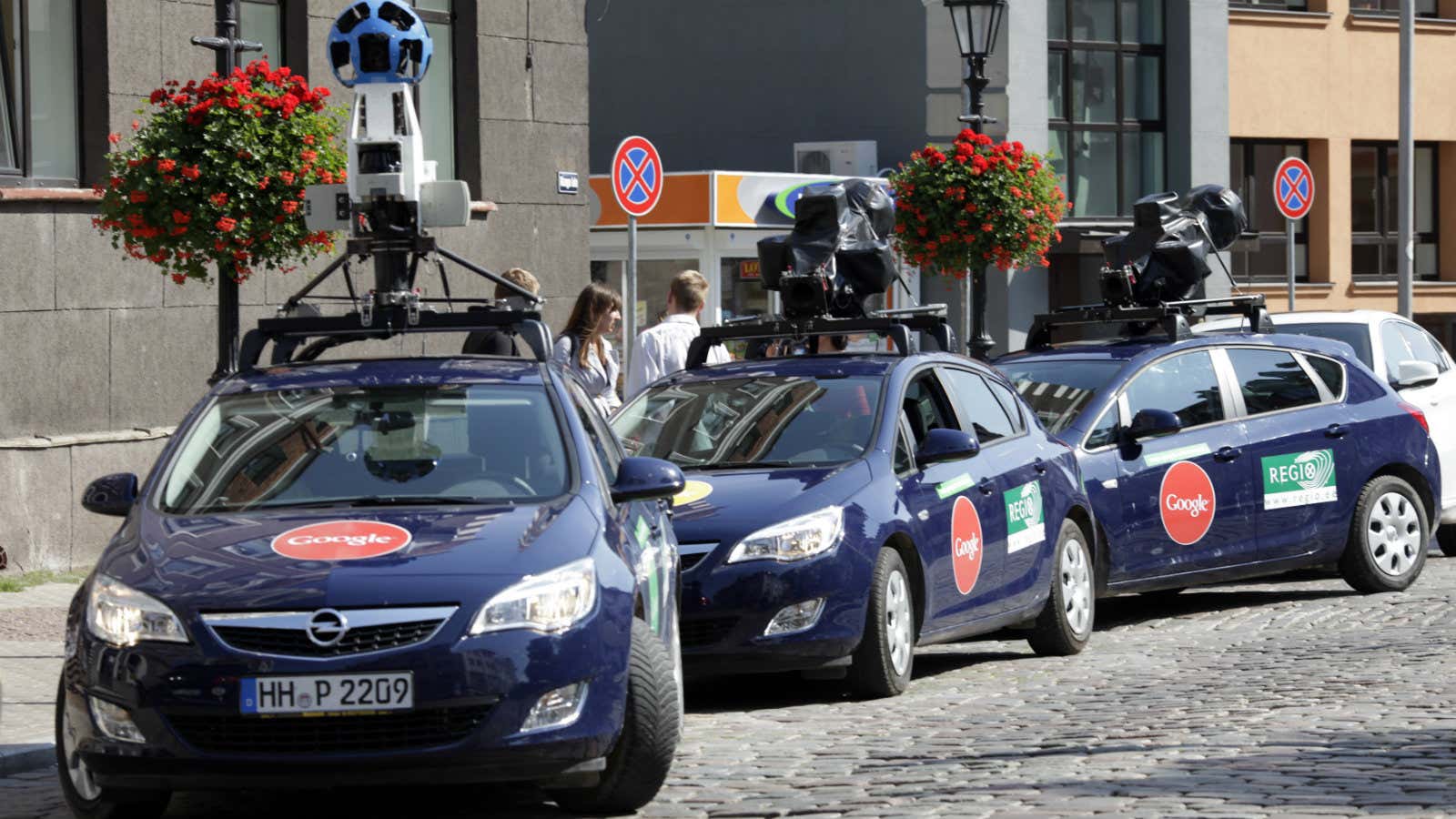Citing security concerns, the Indian government has rejected Google’s plan to include the country in its Street View feature, which lets users get panoramic views of streets.
The Indian government believes Street View could compromise the country’ security interest, Press Trust of India reported. The planning of 2008 Mumbai attacks allegedly included photographic surveillance of targeted areas by Pakistani-American David Coleman Headley. Some reports have also said that terrorists may have used Google maps to plan the attack on India’s military base in Pathankot in January this year.
Google hasn’t replied to an email query from Quartz. We will update this post when the company comments.
The Indian government said it will consider Google’s request for Street View after its Geospatial Information Regulation Bill, 2016, is cleared by parliament. “All such issues will be sorted out after the bill comes into being,” Kiren Rijiju, minister of state for home affairs, told Hindustan Times newspaper.
The Indian home ministry had released a draft of the bill on May 4. It proposed to make government permission mandatory for acquiring, disseminating, publishing or distributing information about India.
Street View is extensively used in the US, Canada, and several European countries, and is also available in India’s neighbouring Sri Lanka. But Google has not been allowed to create the feature for India despite several attempts.
In 2011, the US-based company launched the service in India and started collecting images of streets by driving across cities in specially designed cars topped with high-resolution cameras. It was forced to suspend its plan after the Bengaluru police objected to the collection of images. The police believed that Bengaluru—home to key defense and scientific institutions like Indian Space Research Organisation (ISRO) and Hindustan Aeronautics—was high on the list of terror targets.
Google has reportedly turned a blind eye to several requests from the Indian government over the last few years to mask areas of military or strategic importance in the country on its maps service. However, unlike the US where such sensitive areas are blocked on Google Maps, the company has not responded to the Indian government’s requests.
